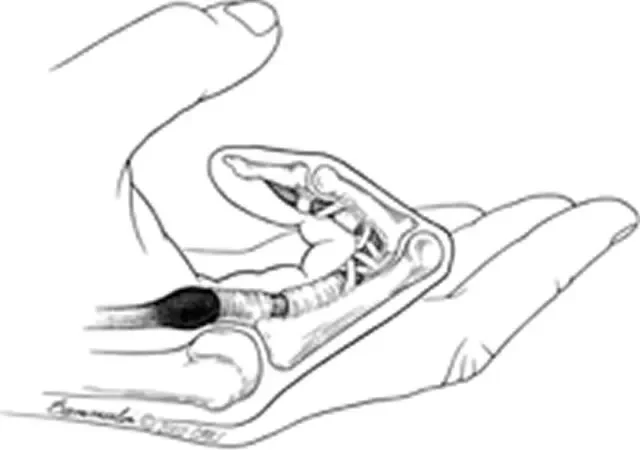
What is Trigger Finger?
Trigger finger or tenosynovitis is inflammation of the tendon. The flexor tendons are the terminal extensions of the forearm muscles. The tendons enter the hand through the wrist and insert on the bones of the fingers to produce flexion or bending. They glide smoothly in tunnels with narrow sections called pulleys. the pulleys function to maintain the tendons within the tunnels.
The tendons may develop a discrete nodule or swelling. The smooth gliding of the tendon within the tunnel is interrupted as the tendon becomes stuck at the narrow portions of the tunnel. The narrow portions correspond to the pulleys.
Patients describe a locking, popping, or catching sensation associated with pain when the tendon becomes caught. Initially, patients may think there is a problem with the finger knuckle not realizing the problem lies with the tendon. At times, the triggering may be so severe that the other hand must be used to straighten the locked finger
What Causes Trigger Finger?
Specific causes for trigger finger are not entirely clear, but it can be associated with other conditions such as gout, osteoarthritis, diabetes and rheumatoid arthritis.
What are the Signs and Symptoms?
Initially, the patient may feel pain or ten-der-ness in the palm. A knot or nodule can be felt in the palm as well. More than one finger or either hand can be affected by the condition including the thumb.
What is the Treatment?
Non-Surgical
Initially, the trigger finger can be treated conservatively with oral anti-inflammatory medication and splinting. Local steroid injections are offered if the patient does not respond to conservative treatment. A series of injections may be necessary to allow complete resolution of symptoms.
Surgical
Operative intervention becomes necessary in those patients who fail to respond to injections and remain symptomatic. The goal of surgery is to cut the narrow portion of the funnel in order to provide room for the enlarged tendon to pass through freely. After surgery, patients may be in the active movement of their fingers. Post-operative pain is minimal in most patients. UofL Health – Frazier Rehab Institute – Hand Therapy is equipped to provide physical therapy following surgery.
For more information or to schedule an appointment please contact us at 502-561-4263 or 1-800-477-4263. To request an appointment online, use our Appointment Request Form.


